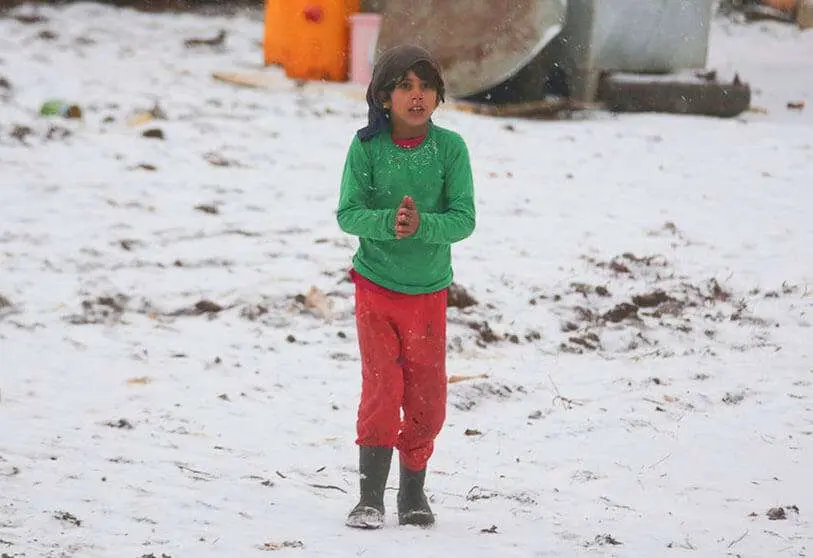900,000 Syrian civilians displaced from Idlib in the middle of winter

Since 1 December 2019, the conflict has displaced more than 900,000 people, 80 per cent of them women and children. It is the largest since the war began. Many of them are living outdoors in the snow and freezing cold. Senior UN officials are horrified by the situation and are calling for an end to the violence.
Syrian civilians are living on plastic sheeting in freezing temperatures and are victims of bombing. This is the daily reality of the humanitarian crisis in Syria, to which the UN High Commissioner for Human Rights expressed on Tuesday to be "horrified".
"Entire families, some of whom have fled from one corner of Syria to another over the past decade, find that bombs are part of their daily lives," said Michelle Bachelet. "How can anyone justify the execution of such indiscriminate and inhumane attacks," she added.
Bachelet stressed that civilians fleeing the fighting have to move to areas without safe shelter and "whose size shrinks by the hour ... they simply have nowhere to go," she said.
Camps for displaced persons are overwhelmed by the large number of people seeking shelter and limited access to food, clean water and medical care.
Many, fearing for their lives, have fled the camps, defying harsh weather conditions and sub-zero temperatures.
Against this dramatic backdrop, the High Commissioner urged all parties to the conflict, including State and non-State actors, to immediately cease hostilities and ensure the protection of all civilians.
In addition, she called on the Government of Syria and its partners to establish humanitarian corridors in conflict areas and allow for the safe movement of civilians.
During this month, the Syrian Government, supported by its allies, launched a major military offensive to retake the provinces of Idlib and Aleppo.
Between 1 and 16 February, the Office of the High Commissioner recorded several incidents in which at least 100 civilians, including 18 women and 35 children, were killed and many others injured as a result of air and ground attacks by Government forces and their allies.
The numbers of civilians killed in Idlib and Aleppo increased to 298 if counted from 1 January. About 93 per cent of those deaths were caused by the Syrian Government and its allies.
The UN estimates that, since 1 December 2019, the conflict has displaced more than 900,000 people, 80 per cent of them women and children, representing the largest displacement of people since the conflict began in 2011.
Massive displacement and hostilities have disrupted routine immunization services of the World Health Organization and its partners in northwest Syria, significantly increasing the risk of disease outbreaks.
Since 1 December, 74 health centres have suspended their activities in Idlib and Aleppo, while only about half of the 550 hospitals in the north-west of the country are operational.
WHO was particularly concerned about the health of the more than half a million displaced children as they are especially prone to hypothermia and respiratory tract infections, especially in a context where many sleep outdoors exposed to the elements.
It also plans to send medicines and essential supplies to Idlib and Aleppo provinces across Turkey's border with Syria in the coming days. The emergency aid will be used for trauma treatment, intensive care and surgery, as well as medicines for non-communicable diseases and primary care.
Children in distress
For her part, the UNICEF Executive Director called the situation in the northwest of the country "unsustainable, even by Syria's grim standards.
"Children and families are caught between violence, bitter cold, lack of food and desperate living conditions. Such disregard for the safety and well-being of children and families is totally unacceptable and must not continue," he said.
The United Nations Children's Fund was able to verify that 77 children have been killed or injured since the escalation of violence began earlier this year.
"We walked for three days and now we live in tents. All our belongings were soaked in rain and mud," says Nadia, a recently displaced mother from Saraqeb in Idlib who now lives in the Aleppo area, in a testimony collected by UNICEF. "I have a very sick child who needs urgent surgery, but I can't afford it. If my son dies, all I can do is bury him."








